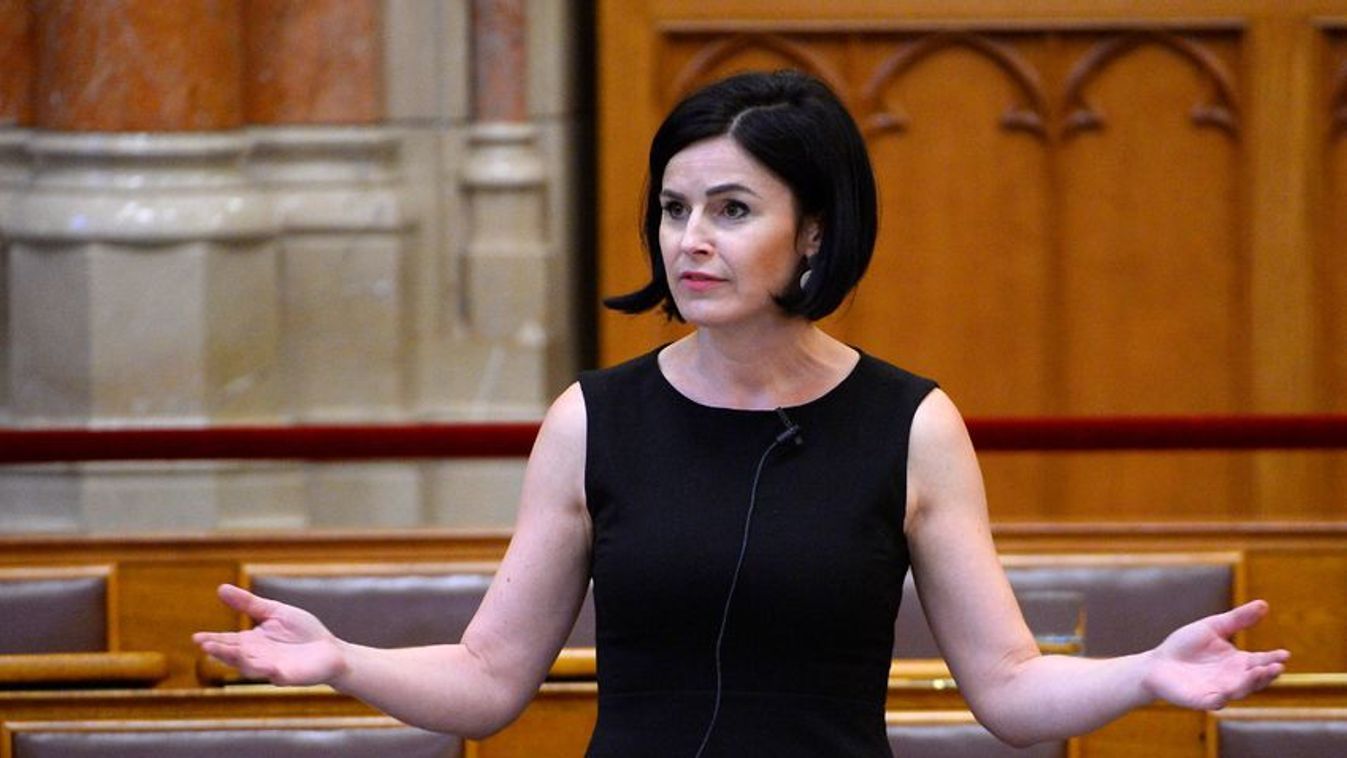Olyan számháborút rittyentett Magyar, Kunhalmi és Dobrev, aminek lehetetlen lett a vége (VIDEÓ)

A választások közeledtével megkezdődött a számháború a baloldalon.

Gordon Bajnai's return to politics comes as no suprise. Nor should it surprise that the left-liberal opposition to Viktor Orbán's government remains so fragmented that it is incapable of taking any steps together in the same direction. Cooperation among the opposition will prove difficult.

"If you have a good theory, forget about the reality" (Slavoj Žižek)
Looking back from the perspective of late 2012, it is surprising that, despite all the changes in Hungary, so little has changed with the political-party landscape. The popularity of Fidesz has plunged since 2010, due to their confrontational style of governance and unorthodox policies. Nevertheless, Fidesz’s growth has still outstripped that of all the other parties. On one hand, the surprising defeats that Fidesz suffered in the by-elections must be seen as a warning sign for the party. On the other, one would be mistaken to believe that the disillusioned masses would vote for an opposing coalition if a general election were held today – especially one including the Socialists and their comrades. There’s still a significant gulf between the post-communists (who, sadly, do exist on the right), and the anti-post-communists on the left.
The left-liberal opposition is still there, just as it was in 2010. They face the same dilemmas and internal strife as two years ago. The Socialists (MSZP) are captives of their failed government of 2002 to 2010. However, they have retained their political organization, which can challenge the parties of today’s government. After years of a Socialist party whose behavior was marked primarily by self-pity, their leader, Attila Mesterházy, shows surprising political skills. He can consider the victories in the midterm elections as a sign of the success of his politics. Why would he step back for some custom-tailored challenger for the premiership, one who seemingly emerged from thin air?
This green-liberal newcomer, the LMP, has, since 2010, been unable to leverage its parliamentary presence to build an improved image. Nor have they left even so much as a foot print in the Hungarian countryside. The LMP is still divided by different views and ideologies, stretching from the New Left and green movements to classic liberalism, which is also open to conservative thinking. The cooperation of the opposition is hardly possible without the Socialists, but if the LMP allies with the Socialists, it would lose the core of its identity. If the LMP goes into the elections alone, it would erase the chances of opposition victory. But at least they would stay true to their principles. The dilemma of cooperation is an existential one for the LMP.
Ferenc Gyurcsány and his small Democratic Coalition (DK) party live on, a loose cannon hamstringing the efforts and ambitions of other opposition parties. Civic movements such as Milla are still taking baby steps and are organizationally weak, but they do have 100,000 Facebook followers (a shade short, of course, of the number in their slogan, “One Million for the Freedom of the Press”). And the myth of the power of NGOs and anti-political movements will vanish if they throw their hat into the ring in 2014.
A Kaleidoscope of Ideologies
It’s in the nature of politics that conflicts of interest, personal antipathies and jealousies hinder the cooperation of opposing politicians. These conflicts just get stronger as the time horizon for agreement wanes.
The other factor is the seemingly intractible conflict of ideologies and worldviews among the opposition. Let's count the players. There are the true activists of the Radical Left or the New Left. There are the old-fashioned trade unions. There are the slick and sly Socialists who sit on the ruins of the old party networks. There are the burned-out, liberal intellectuals. There are the combative environmentalists. There are the left-wing populists building careers on the fears of retired people and the classes who are getting poorer. There are the technocrats and capitalist economists. There are the Orban-o-phobe Hungarian neocons. And, of course, there are those in the noisy background: economic actors, companies, and financial circles infringed upon by the Orbán-government. Not to leave out the international intellectual networks critical of the Hungarian Right's politics, of course. What are their views on international issues? On the politics of Hungary’s neighbors? On the challenges of the EU and the further integration of Europe? What do leftist democrats and technocrats think about these questions?
What are the common denominators, the things they can agree on? Answers to these questions become important if we are to entertain the question of whether they might be capable of joining forces to govern. Only one common denominator is evident at the moment: their desire to topple Viktor Orbán. But is it enough to sustain momentum until the elections, not to speak of afterward?
The global ideological crisis of the Left since the fall of the communism and socialism persists despite years of economic doldrums. One can find interesting Leftist theories about the state of the world, but they’re little more than playthings for the intelligentsia. One needs years of common strategies, harmonized politics and a vast amount of money for the access to and the persuasion of masses conditioned to be apolitical – especially to overcome a strong opponent. The Hungarian Right needed 20 years of rugged organization to achieve this in 2010. The left-liberal opposition in its current form is a long way from getting there.
The Myth of Mr. Bajnai
Many people expect Gordon Bajnai to take the lead in fostering cooperation among the opposition. On the one hand, Bajnai is a political actor, an economist and businessman – a politician who says he’s not a politician. On the other hand, he is the leading character in a myth that he will overcome the Fidesz machine in 2014. One of the most important chapters of this myth was the single year of his premiership in 2009-2010. Many say that he proved his skills to lead the country. Others say he can only be proud of the fact that the country did not go bankrupt in the dark spring of 2009, and he simply implemented some orthodox austerity measures thanks to the votes of the Socialists, keeping them in power for one last year. And many forget that Bajnai’s career did not start in 2009, but rather after the fall of communism in 1989. He was also part of the second Gyurcsány government from 2006. The public are sure to be reminded of all this.
The other important element of the myth is that Gordon Bajnai is such a formidable political force that he would indeed be capable of uniting the opposition’s diverse voters and political forces. But think about it. We have never seen Mr. Bajnai develop his own political machine, rule it internally and carry its banner. We did not see him forging ahead on the strength of his own willpower, slogging through the day-to-day political morass. Now, he will need to also articulate his positions in a clear and simple language. And all of this is anticipated from a public person who summed up his political philosophy in 2010 in an interview in Népszabadság by saying: “I don't consider myself as a politician. A politician is somebody whose occupation is to attain power and keep it for himself. I never wanted to attain power or keep it."
Will Gordon Bajnai be the first prime minister in the world who believes in the Taoist principle of non-action and the possibility of "non-politician-ness"? What is his view on Hungary? And how can it be harmonized with the paradoxical ideologies of current opposition forces? What will be the timetable for securing the cooperation of all the opposition groups? Is it expected that everyone will set aside all differences and anoint Bajnai to his rightful perch? Or should he take part in the organization of this future cooperation? It is possible that Bajnai's "non-political" character is sympathetic to many. But others may argue that it’s meaningless or even antipathetic. Let’s not forget that a character named Péter Medgyessy defeated Viktor Orbán in 2002. But behind Mr. Medgyessy there was a united, strong Socialist party. Looking ahead, the mythical character of Bajnai has some reality tests to endure.
Behind the Myth
If this imagined coalition of the opposition could win in 2014 with Mr. Bajnai as its leader, the real, as opposed to mythical, politics would have to come out. As prime minister, he would have to lead a diverse coalition, facing a likely intact and potent opposition on the right, one with well-established private and public-sector networks in place.
Two keys to successful governance are the knowledge and vindication of the logic of power, and – beyond pure Machiavellianism - the representation of certain important ideas. The fragmented opposition has no answers to the question of how to exercise power and it is currently incapable of establishing common ideas. Compared to the current government, they are out on a limb.
It seems that the myth of Gordon Bajnai is currently just an abstract theory conceived by left-liberal forces (they have a tradition of doing that). In the abstract, everything is neat, logical and crystal clear. That’s fine, at least until you factor in the complex human psyche, conflicts ranging from the reasonable to irrational, and unanticipated maneuvers and fallibilities – all hammers to crystalline theory. The reality check is happening before of our very eyes. We will soon begin to see the results.
*
The article is the translation of an article published in Hungarian on the home page of the weekly Magyar Narancs.











